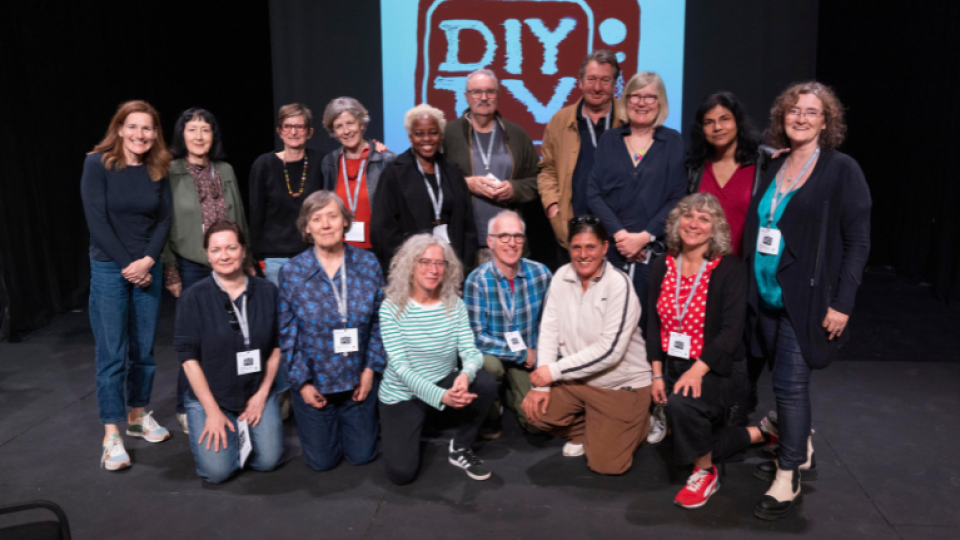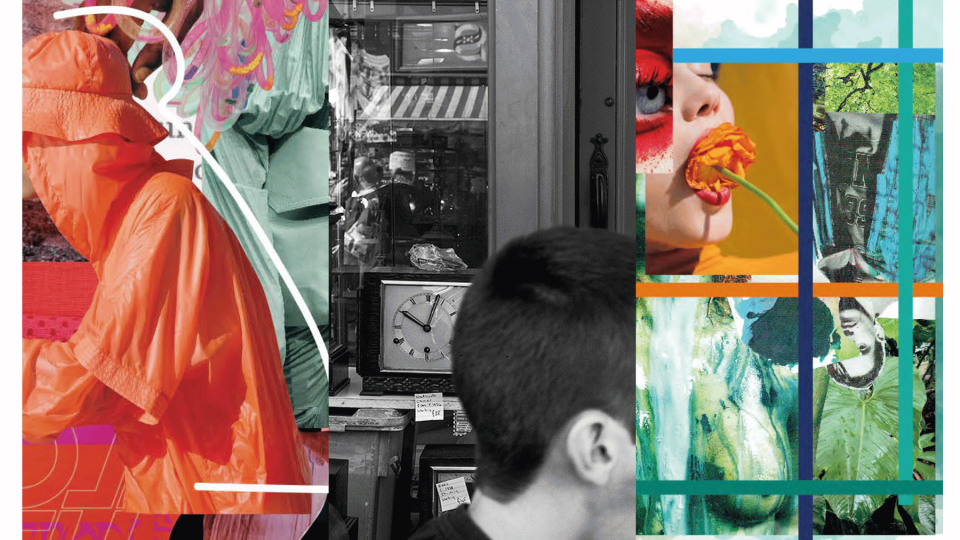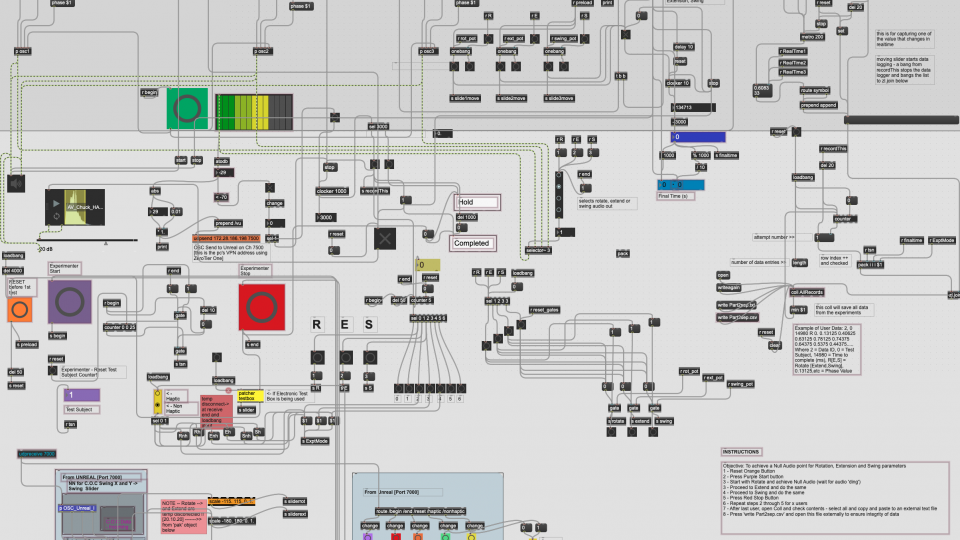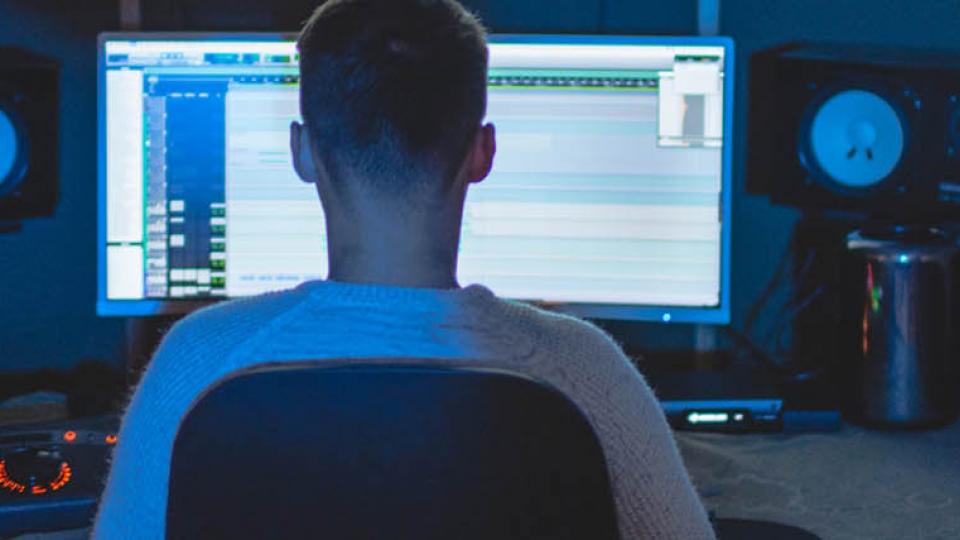
PRISM: Music and Screen
Impacting policy in the music and screen industries
PRISM is an interdisciplinary research institute focused on screen media. Our research incorporates practice-based projects drawing on ethnographic and autoethnographic methodologies, oral history, archival analysis and quantitative data-based methodologies.
Recent research projects include:
- Fifty years of British music video: Industry, influence and impact 1965-2015 (AHRC)
- An archaeology of screen advertising production in Britain (British Academy)
- The hidden screen industries (AHRC)
- DIY TV: The history and influence of the BBC’s Community Programme Unit (The National Lottery Fund)
Our research partners include the British Film Institute, Wellcome Trust, British Library, BBC, Advertising Producers’ Association, the History of Advertising Trust, Warp Records, the British Council, the Danza Contemporanea de Cuba and the FRAME Dance Film Festival.
We work particularly closely with researchers in music performance for stage and screen in the London College of Music (LCM), the Gender and Technology Work Cluster in the London School of Film, Media and Design (LSFMD) and the Geller Institute of Aging and Memory (GIAM).
PRISM offers PhDs in Music, Media and Film in partnership with LCM and LSFMD. We welcome new applications, particularly in topics related to the role of screen media in aging, dementia, healthcare and medicine for co-supervision with GIAM.
Our members
-
Professor Emily Caston
Professor of Screen IndustriesLondon School of Film, Media and DesignEmily Caston is Professor of Screen Industries and Director of the Policy and Practice Research Institute of Screen and Music at UWL (PRISM). She publishes widely on screen advertising and music video with funding from the AHRC, British Academy and Leverhulme, securing high profile public engagement work with the BBC, Sky Arts and the British Film Institute.
-
Dr Zoë Burgess
Senior Research FellowLondon School of Film, Media and DesignZoë completed her PhD in Film at the University of Southampton. Her research there focused on gender and class in the amateur film collection of Wessex Film and Sound Archive (WFSA) a regional film archive where she has worked as a film curator since 2016. Before joining the archive, she gained experience in various cultural heritage and project management roles.
Members of the Centre
- Professor Justin Paterson
- Professor Helen Hester
- Professor Jeremy Strong
- Professor Simon Zagorski-Thomas
- Dr Jo Henderson
- Dr Cathy Sloan
- Sally Chan (PhD student)
- Angela Saward (PhD student, Vice-Chancellor's Scholarship)
- Niamh Gibbs (PhD student)
PRISM Partnerships
-
Sony Music UK
-
Warner Music Group
-
Warp Records
-
British Film Institute
British Film Institute
-
British Council
-
Thunderbird Releasing
-
British Library
-
Advertising Producer's Association
-
History of Advertising Trust
-
Ibiza Music Video Festival
-
Moving Image
Advertising Producers Association Survey
The APA is the UK’s trade body for production companies, animation, VFX, sound design, immersive, music and editing companies making commercials.
In 2022, PRISM conducted the first survey of the 400+ member companies of the APA to provide data for inward investment and trade export activity. The survey is being repeated in 2024 in collaboration with the British Film Institute’s Research and Statistics Unit and the results will be available shortly here.
‘Performing Recovery’ knowledge exchange led by Dr Cathy Sloan
On 8 September 2022, London College of Music (UWL) hosted a ‘Performing Recovery’ knowledge exchange event to launch the Addiction Recovery Arts Network. Across the day, addiction recovery arts organisations and artists-in-recovery from across the UK shared examples of practice to an invited audience. This included music, dance, theatre, drama workshops and film, providing guests with an experience of the unique practices of recovery-engaged arts.
This event was supported by the UWL knowledge exchange seed fund and match funded by Theatre Royal Plymouth. The project lead, Dr Cathy Sloan, specialises in addiction recovery arts practice research and is course leader of BA Applied Theatre.
Mykaell Riley IASPM Keynote: "Who's Telling Your Story?"
The online discussion for the keynote in the first session (on Multiculturalism and Diaspora) of the 15th UK & Ireland branch conference of IASPM.
This conference was hosted online by the University of West London and this event was at 6pm UK time on 19 May 2020.
Research projects
-
Arts and Humanities Research Council (AHRC) Hidden Screen Industries Network
Between 2019 and 2022, PRISM led an AHRC funded research developing a new framework for studying under-represented sectors of the UK’s screen production industry in scholarship and policy.
The UK doesn't have a screen industry. It has many screen industries. Beyond the familiar worlds of the feature film and broadcast television sit many more sectors - the sectors that make music video, screen advertising, fashion film and branded content, those that produce corporate, government, NGO and medical video.
Many of these forms of moving image content are deeply rooted in the earliest filmmaking, produced from the late 19th century, and the rich output of generations of brilliant filmmakers working across the 20th century in such fields as cinema and TV advertising, industrial documentary and public information film constitute a vast proportion of our moving image archives' holdings.
This ground-breaking network brought together contemporary creative practitioners, trade associations, academics, policy makers, historians and archivists to debate and dissect key questions. Partners in the network include the British Film Institute, the Advertising Producers’ Association, Wellcome Trust, and leading scholars from Canada, the USA, Australia, France and Scandinavia to analyse the emergent rich scholarship on ‘useful film’ and its ramifications for current policy and practice. It connected to the AHRC's Creative Industries Clusters' Programme and Creative Economy research.
The interim conclusions of the network will be published in a forthcoming issue of Open Screens, 2024 jointly edited by Professor Emily Caston (UWL) and Patrick Russell, Senior Curator for Non-Fiction at the BFI National Archive.
-
DIY TV: The history and influence of the BBC’s Community Programme Unit (CPU)

Researchers: Professor Helen Hester and Dr Jo Henderson
Funding body: National Lottery Heritage Fund
‘DIY TV: The history of the Community Programme Unit’ aims to bring back into focus the insights of the Community Programme Unit (CPU). Although there has been a recent increase in interest in the CPU, through the ‘People make Television’ exhibition at Raven Row, the significant insights of the CPU are at risk of being lost. DIY TV aims to prevent this information from being lost by preserving and disseminating the history of the CPU.
Doing just that, the Festival of (Me)dia, a weekend long event (April 13-14 2024) as part of the larger project, provided a space for members of this unit to talk about what it was like to be involved as it developed over the 30 years since it was started in 1972.
For more information, see the project webpage.
-
British Academy: Archaeology of screen advertising production
- Researcher: Professor Emily Caston
- Funding body: The British Academy
- Project dates: 5 April 2021 to 30 June 2022
- Industry Partner: The Advertising Producers’ Association
Summary
Commercials made for television, cinema and the internet have been a controversial but also celebrated part of popular culture discourse in Britain. Yet very little is known about the filmmakers who create them.
This research project looks at the community of filmmakers employed by specialist film and television companies, many set up in the 1960s following the launch of commercial TV in Britain in 1955. The project investigates the history of this community through the narrative of its little-known professional association, the Advertising Producers' Association.
Since its launch, the Association has fought for improvements in diversity, education and training, and social responsibility - acting often as a progressive and radical force within advertising.
This work represents part of Caston’s ongoing research into the ‘hidden screen industries’ in Britain, and the results will be published in a forthcoming book with Routledge.
-
Feminist futures
Researcher: Professor Helen Hester
Launched in March 2021, Feminist Futures is a two-year programme of research led by Professor Helen Hester in collaboration with Autonomy, a progressive think tank exploring the future of work.
It will seek to host events and pursue new projects, while also providing a digital platform for the dissemination of new ideas concerning gender, technology and work.
-
British music video: Assessing industry, influence and impact 1966-2016

Researchers: Professor Emily Caston and Professor Justin Smith
Funding body: Arts and Humanities Research Council
In 2015, an Arts and Humanities Research Council award was made to a team of researchers led by Professor Emily Caston and Professor Justin Smith to examine the history of British music video since the 1960s.
The project ran 2015-2018 and was conducted in partnership with the British Film Institute.
A summary of the work and all of the outputs of the research (three journal special issues, a monograph and a limited edition DVD of 200 landmark music videos) can be found on the British Film Institute (BFI) website.
Read more about British Music Video: Assessing Industry, Influence and Impact 1966-2016 .
-
Drawing, dancing and dreaming: Presenting fifty years of innovation in British music videos on the global stage

Researcher: Professor Emily Caston
Funding body: Arts and Humanities Research Council
A Follow-on Funding grant was awarded to Professor Emily Caston by the Arts and Humanities Research Council (AHRC) to take curated programmes of British music videos on a world tour (2017-2019).
It involved a series of workshop collaborations with the Danza Contemporanea de Cuba, Cuba rapper / hip hop artist Telmary Diaz and British music video director WIZ in Cuba in May 2018.
-
Colourful world: A game for sustainable development education for children
Researcher: Professor Jeremy Strong
Funding body: Erasmus
An Erasmus-funded project with 6 European partners.
- Duration: 2018 – 2021
- Project value: €264,423
- Project Co-Ordinator: Jeremy Strong
UWL is the lead institution for this project which will create a computer learning game to support the education of sustainable development for children aged 6 – 10 and to raise their interest in STEM in formal and informal learning contexts.
The goal is to raise environmentally-conscious European citizens, knowledgeable about sustainability challenges, and ready to act and contribute to sustainable European and global societies.
-
Gender, technology and work
Researcher: Professor Helen Hester
Helen Hester’s research has considered issues such as: the feminisation of domestic and workplace technologies (including the automation of secretarial and emotional labour, and the exploitation of cultural ideas about gender in the design of digital voice assistants); the gendered discourses surrounding chatbots (particularly, the adoption of the personas of young women by corporate Twitter bots); the rise of ‘artificial artificial intelligence’ (as a marketing technique obscuring the often feminised labour performed by a hyperexploited human workforce); and the influence of 1990s cyberfeminism upon contemporary gender political art and activism in digital spaces.
She was on the review board for UNESCO's ‘Steering AI and Advanced ICTs for Knowledge Societies’ report.
Dr Hester recently recorded a podcast for The Guardian on these AI issues:
- Podcast 'Do smart assistants need a feminist reboot?' part 1
- Podcast 'Do smart assistants need a feminist reboot?' part 2
Find out more about the Gender, Technology and Work project.
-
Rhythm Symposium
Rhythm Symposium is a study day dedicated to rhythm in composition, performance and theory, encompassing a conference of academic talks, lecture-recitals and live performances.
-
Haptic authoring pipeline for the production of immersive experiences (HAPPIE)

Researcher: Professor Justin Paterson
Funding body: Innovate UK
In 2019, Innovate UK (part of the new UK Research and Innovation group) awarded £1 million to the “HAPPIE” project (Haptic Authoring Pipeline for the Production of Immersive Experiences).
This project is being conducted by a consortium comprising Generic Robotics Ltd, Numerion Software Ltd, Science Museum Group, Sliced Bread Animation, Open University and the University of West London.
-
Classical music hyper-production and practice
Researcher: Professor Simon Zagorski-Thomas
Run: 2015 -
Value: £40,101
AHRC funded Classical Music Hyper-Production and Practice As Research project.
-
Performance in the recording studio
Researcher: Professor Simon Zagorski-Thomas
Run: 2012-2013
Value: £35,561
AHRC funded Performance in the Recording Studio Research project.
-
Innovation in music
Researcher: Professor Justin Paterson
The Innovation in Music conference is a European music industry conference bringing together researchers and professionals alike who are interested in the future of the music industry, from the artist through to the consumer.
It was co-founded in 2013 by Professor Justin Paterson with a scope that included innovations in music: creation, technology, production and business, through to sound engineering, games music, post-production and particularly cross-disciplinary themes.
The 2019 conference was held at the University of West London and chaired by Paterson and showcased a world first in remote performance.
-
The interactive album app

Researchers: Professor Justin Paterson and Professor Rob Toulson
Funding body: Arts and Humanities Research Council
In 2014, Professor of Music Production Justin Paterson was awarded £80,000 funding, in collaboration with Professor Rob Toulson from Anglia Ruskin University, Director of its Cultures of the Digital Economy (CoDE) research institute.
The research was funded through the Arts and Humanities Research Council (AHRC) via its 'Digital Transformations' theme to a total value of £80,000.
The project investigated the app as a potential album-release format of the future with algorithmically controlled playback to ‘automatically remix’ the music live, to lure the consumer away from the ‘single-track download’ mentality.
-
The commercialisation of interactive music

Researcher: Professor Justin Paterson
Funding body: Arts and Humanities Research Council
In 2015, the Arts and Humanities Research Council (AHRC) funded a follow-on research project called The Commercialisation of Interactive Music, led by Professor Justin Paterson – this time releasing music from several international Warner Music Group artists in the variPlay format.
-
Towards a paradigm of new musical performance
Researchers: Professor Justin Paterson and Professor Rob Toulson
Funding body: UWL
UWL seed funding provided Professor Justin Paterson with the chance to collaborate with Swedish innovator Håkan Lidbo in 2018.
The work was to model traditional Swedish musical instruments from the Swedish Museum of Performing Arts in virtual reality, and allow users to easily interact with them and play algorithmic music via authentic recordings of the actual museum instruments in an ensemble of other such traditional instruments from the collection.
-
21st century music research practice network

Researcher: Professor Simon Zagorski-Thomas
The London and SE 21st Century Music Practice Research Network was established by Professor Simon Zagorski-Thomas of the University of West London in the summer of 2016.
The aim was to encourage and disseminate research and scholarly collaboration that includes all areas of contemporary musical activity. In particular the network aimed to stimulate discourse between disciplines: bringing together scholars from popular music, musical theatre, performance studies, music for visual media, recording, electronic and electroacoustic music, live sound, ethnomusicology and composition to discuss broad themes that are relevant across subject boundaries.
Find out more about 21st Century Music Research Practice Network.
-
Joy Division and New Order
Researcher: Mike Exarchos
Mike Exarchos, Senior Lecturer and Course Leader in the London College of Music has conducted research on British bands Joy Division and New Order.
Beginning 22 October 2020, the eight part pod-cast series ‘Transmissions: The Definitive Story’ featured Dr Mike Exarchos and also exclusive interviews with the band; Bernard Sumner, Stephen Morris, Gillian Gilbert and Peter Hook, plus contributions from iconic guests and narrated by Maxine Peake.
‘Transmissions: The Definitive Story’ podcast is available via Spotify, Apple Music, Youtube and Amazon Music.
-
The Music Room
Researchers: Professor Sara McGuinness and Professor Simon Zagorski-Thomas
The Cuban Music Room and the UWL Music Room (UWL seed funding £3,000, UWL University Teaching fellow Funding £700).
The Music Rooms are low-tech immersive music systems created by Professor Sara McGuinness and Professor Simon Zagorski-Thomas in conjunction with a team of Cuban academics and practitioners.
It provides in-depth access to performances set within their ‘home’ settings at a relatively low cost.
A pilot recording of top Cuban rumba group ‘Los Muñequitos de Matanzas’ has been displayed with great success. Just before COVID-19 lockdown, they began work with UWL staff and students on a UWL based version of the project. They also captured a performance of acclaimed British Jazz trumpeter Byron Wallen and his Hurricane Bells project, creating music inspired by bells cast to the coordinates of Hurricane Katrina as it headed towards New Orleans.
-
The Phantom of the Opera
Researcher: Professor Robert Sholl
Robert Sholl has been involved in a practice-based research project on the Phantom of the Opera.
A podcast of some of his improvision is on YouTube. The full ten episodes will include original music in late-nineteenth century style (three arias and one opera scene performed using a period piano) which he composed plus some further improvisations. The podcast was produced by Dr Leslie McMurtry at Salford University.
Find out more about research degrees with the London College of Music and the School of Film, Media and Design.
PhD research projects
-
The transparent womb: Gestational labour, reproductive technologies and the politics of visual culture
- PhD student - Holly Isard (Wellcome funded)
- Principal Supervisor - Professor Helen Hester
Using social reproduction theory as a framework, this project starts from the position that all gestation can be thought through a lens of labour.
Framed around a number of case studies gathered from UK-based archives, it will explore the gendered and racialised politics of the visual representation of historical and emerging reproductive technologies, and the effect of this representation on the cultural imagination.
-
Spatial labour and the politics of place in revolutionary Rojava
- PhD student - Charlotte Grace (Bursary)
- Principal Supervisor - Professor Helen Hester
This project explores the sociospatial particularities of the Kurdish struggle for self-determination in Rojava, Northern Syria, which centres feminist, anti-colonial and ecological principles.
Through this site I am developing the concept of Spatial Labour as a way to visibilise gendered labour practices done with and through space, thereby contributing to existing feminist and sociospatial discourse both in the region and elsewhere.
-
Embodied emotions and collective struggle: Hashtag feminism as digital consciousness-raising in Brazil
- PhD student - Gabriela Loureiro
- Principal Supervisor - Professor Helen Hester
My thesis explores the emotional work of online disclosure in two hashtags that went viral in Brazil in 2015 (#FirstHarassment and #MySecretFriend).
The hashtags are interpreted as digital forms of consciousness-raising that made use of narratives about emotions and the body to raise awareness about gendered violence (#FirstHarassment) and irony and the pleasures of revenge to seek accountability in informal and non-punitive ways (#MySecretFriend).
-
Communicating a new economic paradigm: Deconstructing hegemonic narratives around economic growth and creating a new frame for the steady state economy
- PhD student - James Palmer
- Principal Supervisor - Professor Helen Hester
This research project will look at the entrenched hegemonic idea that economic growth is inherently good, studying how this consumerist ideology has been communicated since the rise of neoliberalism and how it might be challenged in the face of the climate crisis.
The aim of the project is to formulate practical recommendations for the communication of alternative economic models where endless growth is not a desired outcome, particularly the steady state economy.
-
An investigation of martial arts representation in British TV, film and advertising from the 1960s-1990s
- PhD student - Sally Chan
- Principal Supervisor - Professor Emily Caston
This study uncovers how the portrayals of Chinese on TV and film may have attributed to their subsequent stereotyping on British TV commercials during the 1960s to 1990s, focusing on the influence of martial arts tropes in TV and film.
Find out more
-
Research Centres and Groups
Find out about our multi-disciplinary areas of expertise, PhD research, and teaching.
-
Research impact
Learn how our PhD research has helped communities locally, nationally and internationally.
-
The Graduate School
If you are interested in studying for a PhD or Professional Doctorate, the Graduate School is here to support your research.



















